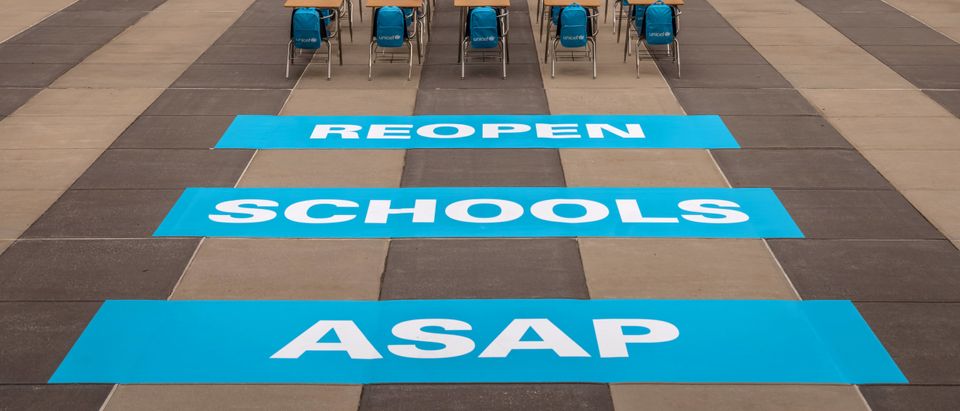A new study from Samford University and the American Federation for Children found an increased association between school closures and reported anxiety and depression among parents.
The study investigated the consequences of “the closure of in-person learning on mental health outcomes.” It found a 33% increase in reported mental health challenges among parents correlated with an increase in school closures.
“The transition to remote instruction is equivalent to worsening parent mental health outcomes by an additional 33 percent when evaluated at the average,” the study reads. “Similarly, the average share of respondents who report being depressed or losing interest over half the days during the week is roughly 18 percent and 20 percent, respectively.”
A full transition to remote learning was associated with a five- to 10-point increase in the likelihood of parents reporting mental health issues “most days in the previous week,” according to an op-ed from one of the study’s authors.
“Using Census Bureau survey data, we found that pandemic-induced remote instruction made several mental-health outcomes worse for parents of school-age children
These negative effects are substantial, translating to about a 33% increase in anxiety, depression and worry”
— Corey A. DeAngelis (@DeAngelisCorey) January 6, 2022
The study was released after more than 2,100 public school districts nationwide announced a temporary return to virtual learning amid a spike in COVID-19 Omicron cases. School districts in major cities including Washington D.C., Detroit, Chicago and New York closed their doors to in-person instruction. (RELATED: Majority Of Chicago’s Unionized Teachers Reportedly Vow To Strike If Schools Remain In-Person)
The authors of the study also investigated whether the shift to remote learning “created additional challenges for parents of school-age children in balancing both work and childcare.”
“Given that parents were bombarded with difficulties in the labor market (including the potential for job loss) and, more generally, with a halt to social interaction through state quarantine policies, we argue that the shift to remote instructional arrangements constitutes an additional burden,” the study reads.
The authors argued that the burdens on parents were “especially costly” as there was a “decline in child care labor, driven in large part from the rise in child care regulations, which prevented parents from finding alternatives.”
The reported increase in anxiety, depression, and other mental health issues was concentrated in states with a higher share of GOP voters, according to the study. The authors concluded that remote instruction is “more costly” in areas with a lower preference for it.


